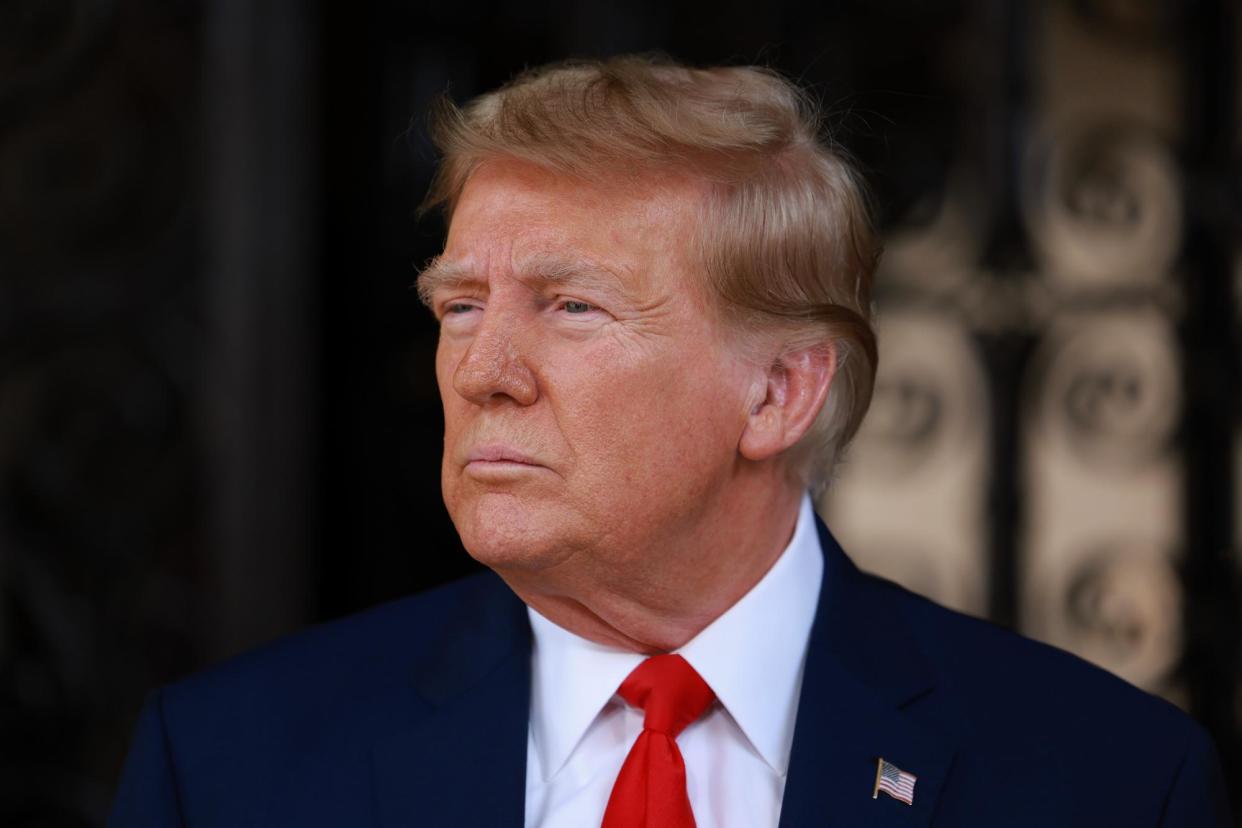Judge in Mar-a-Lago case likely to delay trial in boon for Trump

A federal judge overseeing Donald Trump’s criminal case over his retention of classified documents appeared inclined to reject a proposal by special counsel prosecutors that she set a schedule culminating in a July trial, suggesting at a court hearing on Friday she found the timeline unworkable.
The US district judge Aileen Cannon did not set a new trial date from the bench – it is currently set for May but almost certain to be scrapped – and it was unclear whether she would adopt competing schedules proposed by Trump and prosecutors, or set her own.
Related: Trump again presses for delay of classified documents trial until 2025
Trump himself attended the entirety of the hearing, which he often spent smirking and whispering to his lead lawyer, Todd Blanche. When Trump departed the courthouse, his motorcade slowed down so Trump could wave to supporters who had assembled with flags several lines deep.
The apparent jubilation of Trump after the hearing was striking. Trump has been surly in all of his court hearings to date but watching Cannon engage in tense exchanges with prosecutors – as the special counsel Jack Smith watched with alarm – seemed to energize his mood.
Trump, the frontrunner for the Republican nomination, chose to attend the hearing in the classified documents case instead of a hearing in Atlanta as a judge there considers whether the Fulton county district attorney, Fani Willis, should be disqualified over supposed conflicts of interest.
At the roughly five-hour hearing, Cannon expressed particular reservation with the proposed timetable submitted by prosecutors, saying part of their schedule was “unrealistic”, and putting in doubt the probability she would move forward with proceedings that would mean Trump going to trial in July.
The skepticism from Cannon came as prosecutors and lawyers for Trump sparred over forthcoming deadlines, which could have profound implications for the scope and viability of not just the documents case but also for the federal 2020 election interference case in Washington.
Prosecutors complained at the hearing that Trump’s proposed schedule was too slow, which drew a sharp response from Trump’s legal team, who told the judge it was impossible for Trump to be on trial in New York for his hush-money case and attend hearings at the same time in Florida.
The deputy special counsel, Jay Bratt, exasperated by the situation, at one point quipped: “We want to keep the case moving along” – which drew an instant rebuke from Cannon, who replied that while it may not be apparent to them, “there’s a lot of working getting done behind the scenes”.
Trump’s lawyers reiterated that they wanted Cannon to delay the classified documents trial until after the 2024 election in November, claiming once again that it was unfair to his presidential campaign and unfair to him personally because he could not be in courtrooms in New York and in Florida.
The issue with a July trial date, Blanche said, was that Trump would be stuck in a Manhattan courtroom for roughly six weeks starting on 25 March when he faces charges that he falsified business records in hiding hush-money payments before the 2016 election.
Adopting prosecutors’ schedule, Blanche said, would make it impossible for Trump and his lawyers, some of whom are involved in both cases, to attend both the New York trial and major hearings as he is entitled to as a defendant during that period before Cannon.
The hearing only got worse for the special counsel after the lunch break.
Prosecutors had asked Cannon to reverse a recent order in which she allowed Trump to file redacted court documents and exhibits that would expose the identity of potential trial witnesses – but Cannon again expressed deep skepticism of the government’s position.
The request to reverse the order, known as a motion for reconsideration, had argued Cannon applied the wrong legal standard to allow dozens of identities to become public, which could result in potential harassment or intimidation.
Cannon signalled she disagreed with prosecutors, repeatedly asking why they believed civil precedent about sealing motions that referenced discovery otherwise shielded by a protective order extended to criminal cases, where there is greater weight to keeping court filings public.
The judge also appeared inclined to grant Trump’s request to hold an evidentiary hearing to determine whether the scope of the “prosecution team” should be expanded to include additional FBI agents, officials from the US intelligence community and components of the Biden White House.
Trump has sought for weeks to have the “prosecution team” encompass more entities, in large part because it would force those agencies to provide more information in discovery, further slowing down the timeline to trial.